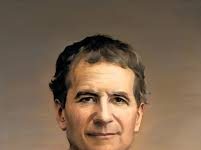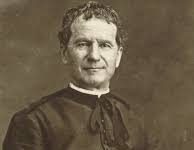
The headlines proclaimed it, in a his and her perspective, on why a young-ish, urbanite couple plan never and, they mean never, never, never in the Taylor Swiftian sense, to have children. The mother, excuse me, the ‘wife’, Tina Marsh tells her side, then the ‘man’, Calum, his. Yes, I use scare quotes, since he in particular mans not up to his station as a husband, as is fit for what should be the head of the household. Nor does she fulfill the role of wife, as is requisite in a marriage, in deliberately refusing to have children.
In fact, the millennial couple (their ages are not given, curiously) are not really married at all: As Saint Augustine made clear, and which the Church has adopted, a marriage requires three ‘goods’ or ‘characteristics’ for the marriage to be integral or real: Fides, proles, sacramentum: Namely, fidelity to the one spouse (fides), openness to children (proles), and indissolubility, until death do you part (sacramentum). If any one of these is deliberately denied or rejected in the vows or the intention, the marriage is null and void, even at a natural, non-sacramental level. So Calum and Tina, should they ever come to their senses, will have to regularize their irregular situation.
But let us look at the causes of their non-marital state and the focus of their diatribe, namely, their adamant refusal to have children.
The woman, Tina, seems rather prosaic in her a priori rejection of motherhood:
Why do I not want children? It’s simple: I don’t want to raise a child. I don’t mean to be coy with the minimalism of my reasoning, that’s simply what it boils down to. And that should be enough.
Tina seems to think a little more deeply for a moment, perhaps realizing the inadequacy of this trite reply, so she goes on, still rather lamely:
My decision boils down to knowing myself better than anyone else. The sheer weight of responsibility of raising a child would change my life dramatically. I have an attention deficit disorder that already makes every aspect of life challenging; throwing a kid into the mix would seriously hinder not only the quotidian aspects of my life, but also what I want to accomplish with it.
Attention-deficit disorder? Lo and behold, that may well be carved onto the tombstone of our dying civilization: Death by psychological-esque labelling. The end comes not with a bang, but with a whimper from the therapist’s couch. ‘But, Doc, I just can’t focus on kids..I mean, what time is left after binging on Game of Thrones and How to Make a Murderer..?’
But then along comes Calum, the male half of this odd couple, and even my cynical self was taken aback by his direct honesty. His perspective perhaps lurks deep in the heart of every self-absorbed male (by which I include all members that XY genus):
Children? Those fleshy barnacles of snot and mutiny? Those extortionate burdens? Those shrieking, dribbling, bawling horrors? Not for me, thank you. And not – I rashly assumed – for anyone else in my peer group. That my friend could want a child seemed to me unthinkable. It was as if she’d said she planned to invade Poland.
Truly astounding. I just spent a weekend with my brother and his two children, a toddler two years old and a baby-nearly-turning-toddler aged 10 months, and, yes, they do keep the parents up at night, they shriek and bawl, and emit various bodily effluences, as do we all, don’t we Calum? It’s just that yours and mine, for now, are hidden, usually behind locked bathroom doors, while babies have not that privilege of privacy. That privilege, however, may be lost any day by sickness or old age, and what then? Who, indeed, will care for a crying, bawling, snot-smeared-dribbling-and-incontinent Calum?
Wait a minute…did not someone already do so, namely, those who begot, raised and changed the diapers of said Calum-of-no-children?
Calum is not yet finished, and goes on:
Let’s briefly address my reasons. I’m afraid they’re not especially insightful: I value my lifestyle, and I like having the means to maintain it. I value my free time. I’d like to re-read the complete works of Shakespeare, and get around to tackling Proust; I’m keen to learn Latin and modern dance; I wouldn’t mind visiting Locarno, Ankara and Bucharest. I also enjoy the freedom from responsibility childlessness affords me. I can’t begin to imagine the burden not only of time and money but of authority and influence – of being accountable for a human life. It’s lunacy that so many people are comfortable with it. I can no more picture myself raising a child as I can building a log cabin or captaining an aircraft carrier. Maybe it’s within my ability. But more likely I’d screw it up.
At least he brings things out into the open, making explicit what is implicit in most of our millennial generation, that they do not want children because they are too self-absorbed. Learning Latin? In any normal culture (as in, one generation ago), Calum would have mastered his declensions when he was still four-and-a-half feet tall and had residual childhood trouble controlling his ‘bodily effluences’.
Yes, Calum, if life were all about our own individual, natural self-perfection, then your argument sort of makes sense. Become a Renaissance Man, a veritable Leonardo (da Vinci, that is, not di Caprio), waltz, dance, sing, travel, sip finely aged wines, and experience all the exotic locales and food your maxed-out Platinum Visa can get you. Gather ye rosebuds while ye may…
But at the end of the day, or, more properly, at the end of your life, where does it get you?
To respond to this misguided couple, who somehow managed to get their ludicrous opinion printed in a national newspaper: There are two basic reasons to have children, natural and supernatural.
First, the natural: Children are the only way that a civilization and, more to the point, a culture can survive. Every single Western nation, and by that I mean once-Christian cultures, is in steep demographic decline at a suicidal rate. The United States is hanging on barely at replacement level, but not by much, and helped along in large measure by immigration. Peruse the numbers if you have the stomach for it.
The only ‘culture’ which is reproducing itself on a worldwide scale is the Islamic, by means fair and foul. Within one or two generations, a number of Western nations will be predominantly Muslim.
To get married and then to refuse to have children is to neglect one’s societal and civilizational duty. It is to say: My life, here and now, is all that matters, and to hell with future generations. In the immortal words of Keynes, In the end, we’re all dead. Following such Keynsian logic, we have all abdicated our responsibility in a fiscal sense, burdening our children and grandchildren to the n-th generation with unbelievable and unpayable debt. Now we are even refusing to give them the gift of life.
But there is hope, for we all know of many Catholic and other Christians still having children, but not enough, as of yet, to stem the tide. Many of the alumni of the Catholic college at which I teach, although still young, are very open to life, and it is a great joy to my heart to see them visit with all their babies, as a number did last weekend at our annual Family Reunion.
Which brings me to the second reason to beget children, supernatural. Whether one believe it or not, we are created by God for eternal life, which takes shape by our choices and actions here and now. We will only achieve eternal (and even natural) happiness by living here a life of charity, of self-gift, of relation with others, and of sacrifice:
For whoever would save his life will lose it, and whoever loses his life for my sake will find it. For what will it profit a man, if he gains the whole world and forfeits his life?
Forget the world, Calum, but to forfeit eternal life for Proust, modern dance and Ankara?, to paraphrase the great Thomas More in his reply to the perjuring Richard Rich.
Here is the rub: Calum and Tina are correct that there is no binding duty to have children for happiness here, nor even to enter into eternity and ‘find life’. Christ Himself died childless, in a physical, biological sense, as did untold numbers of other great men and women. Many couples cannot have children. And there are many others who choose not to marry, or who cannot find a spouse, and must live a life of unintended singlehood.
However, whether married, single, childless, or not, the essential thing is that one must give one’s life to something higher than oneself, to family, to care for parents, to dedicate oneself to an apostolate, to missionary work or some other way to ‘lose’, or ‘give’, one’s life. I found it curious that neither Calum nor Tina mention the needs of their spouse in their decision never to have children; it seems all about them as individuals, who happen to share a bed and house.
That all said, historically and into the present day, getting married and raising children is the path of most people to perfection, while also being necessary for the continuation of the human race (the two are connected, according to Saint Thomas).
That is why, if one chooses to enter into the vocation of matrimony and the great joys of its conjugal life, of home and hearth, one must fulfill all the rights and obligations of that noble state, not least to raise and educate children. Then that becomes your path to perfection and sanctity. In the words of Lord Nelson in a rather different context, one must do one’s duty, along with which comes great joy and fulfilment, as many a parent can attest.
The only tragic blessing for Calum and Tina is that, ironically, they will have no one to whom to pass along their self-centred and self-defeating worldview. Perhaps they could peruse the following prayer from the psalms over their morning latte, as they groom their coddled kittie, before it is too late for them:
Your wife will be like a fruitful vine within your house;
Your children will be like olive shoots around your table.
Lo, thus shall the man be blessed who fears the Lord.












